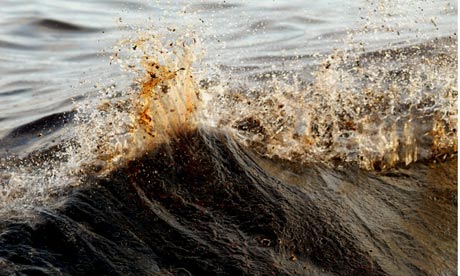An independent panel of technical experts released its interim report today, finding that BP and its contractors ignored clear warning signs foretelling the disaster at BP’s Macondo well in the Gulf of Mexico. The report, compiled by a scientific committee of the National Academy of Engineering and National Research Council, criticized BP for an “insufficient consideration of risk” in light of “several indications of potential hazard.”
Convened at the behest of Interior Secretary Ken Salazar, the committee was instructed to carry out an independent and science-based investigation into the root causes of the Deepwater Horizon oil platform explosion which killed 11 workers on April 20, 2010.
The experts note that BP and the other companies failed to learn from “near misses” in the past, and none of the companies or regulators flagged the flawed decisions that contributed to the well blowout.
While the U.S. government continues to allow offshore oil and gas operations following a brief deepwater drilling moratorium, the facts uncovered in independent analyses of the BP blowout point to a systemic industry problem with carelessness and a disregard for safety. It seems cost-shaving and profit potential are the industry’s key concerns, not the safety of America’s ecologically sensitive coastal environments, and certainly not the safety of workers and affected communities.
AP reports on the study’s findings:
And ENS notes that BP cut corners to save money, according to the new report:
Reuters has a summary of the report’s findings, including:
The committee will release its final report in June 2011.
Subscribe to our newsletter
Stay up to date with DeSmog news and alerts







